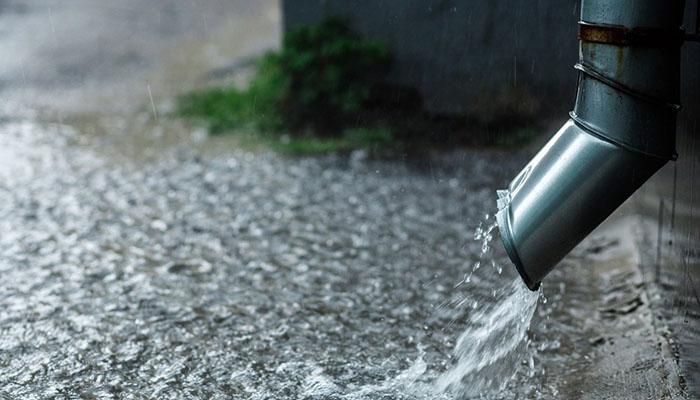2) Is Water Collecting in Your Basement?
Basements and crawlspaces are notorious for collecting unwanted rainwater. Any moisture present in your basement or on your foundation walls can lead to mold development within 48 hours. If you have basement mold or moisture, contact a professional as soon as possible. Moisture and mold issues will not correct themselves on their own.
3) Is Your Roof Leaking?
Heavy rainfall is a key opportunity to check your attic for signs your roof is leaking. Like your basement, moisture in your attic can lead to the development of mold. Furthermore, roof leaks can send water draining down to your ceiling and into your walls. It is important to correct a leaky roof as soon as possible.
4) Are Your Gutters Draining Properly?
If your gutters are clogged or damaged, they will not properly channel water away from your roof and siding. Additionally, during and after the rain, make sure the water draining from your gutters is properly channeled away from your home’s foundation.
5) Is There Moisture on Your Windows?
Moisture inside your window panes and collecting on your window sills can lead to mold development. The presence of this kind of moisture may indicate one or more of several potential issues:
· Your home’s humidity is higher than usual
· Your windows’ weather sealants are worn
· Your windows are damaged and require replacement
· Your HVAC system is not adequately dehumidifying your home
Make sure you wipe up moisture on your window sills and panes as soon as possible. If you uncover moisture or mold issues after this storm or others, make sure you contact a professional. As emergency residential contractors, we can help direct your decisions regarding mold remediation and moisture correction.

